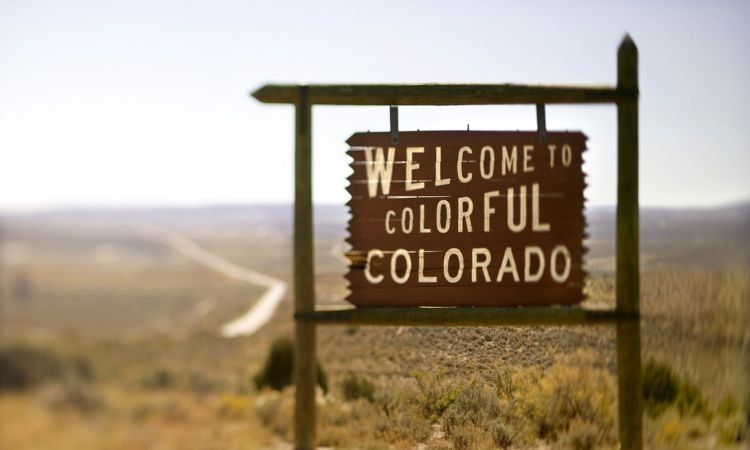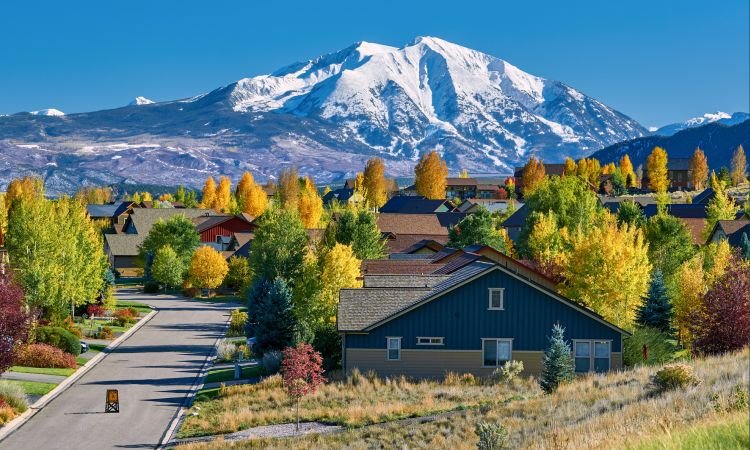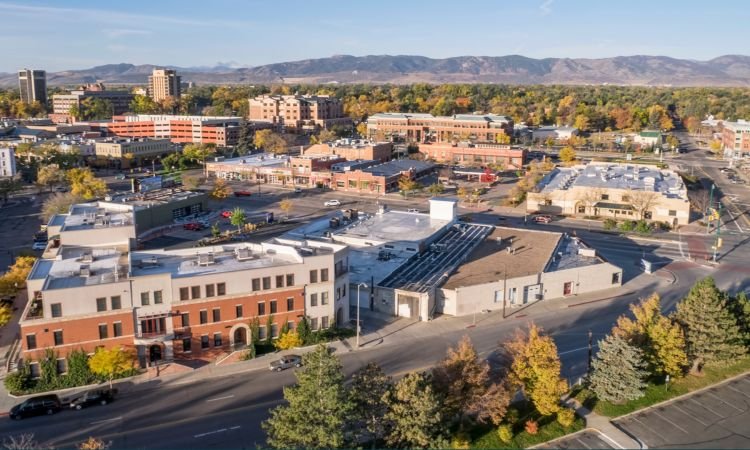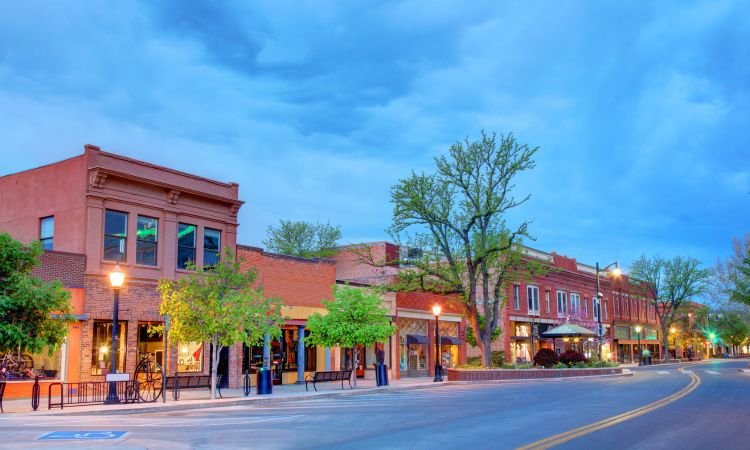
Colorado, often revered for its stunning Rocky Mountain landscapes and vibrant outdoor culture, is not just a paradise for skiers and hikers—it’s also becoming a top retirement destination. Known as the “Centennial State” for becoming a state one hundred years after the signing of the Declaration of Independence, Colorado offers a unique combination of natural beauty, bustling urban centers, and tranquil towns. Recent rankings have highlighted its popularity among retirees, particularly for its health-conscious and active lifestyle, making it an increasingly sought-after location for those looking to enjoy their golden years in a dynamic environment.
Pros & Cons of Retiring in Colorado: Your Complete Guide
- Why Consider Colorado for Retirement?
- Pros of Retiring in Colorado
- Cons of Retiring in Colorado
- FAQs about Retiring in Colorado
- Best Places to Retire in Colorado
- Final Verdict: Is Colorado a Good Place to Retire?

Why Consider Colorado for Retirement?
Retiring in Colorado offers a unique blend of natural beauty, vibrant culture, recreational diversity, and a welcoming community spirit, making it a highly attractive option for retirees. Colorado’s appeal to retirees is extensive, providing an ideal backdrop for a fulfilling post-retirement lifestyle:
- Outdoor Enthusiasts: Colorado’s vast and varied landscapes, from the Rocky Mountains to the expansive plains, offer endless opportunities for hiking, skiing, and mountain biking. The state’s numerous national parks and recreational areas are perfect for adventurers seeking to explore the great outdoors.
- History Buffs: Delve into the rich history of the Old West with visits to historical mining towns, Native American heritage sites, and museums like the Colorado History Museum in Denver. Colorado’s history is deeply intertwined with the pioneering spirit of the American frontier.
- Winter Sports Lovers: Known for its world-class ski resorts such as Aspen, Vail, and Breckenridge, Colorado is a haven for skiing, snowboarding, and other winter sports, offering some of the best slopes and facilities in the world.
- Community Seekers: Colorado is known for its friendly towns and cities, where community events, local arts scenes, and farm-to-table dining are part of everyday life. Cities like Boulder and Fort Collins exemplify community spirit with their regular social gatherings and active civic engagement.
Pros of Retiring in Colorado

Low Cost of Living in Select Areas
While Colorado is known for some high-cost areas, especially around popular cities like Denver and Boulder, it also offers regions where the cost of living is surprisingly affordable. This is particularly true in many smaller towns and rural areas that lie outside the major urban centers. These areas provide a lower cost of living compared to other states that boast similar natural and cultural amenities. Places like Pueblo, Canon City, and Montrose offer a more cost-effective lifestyle while still providing access to Colorado’s rich recreational activities and beautiful landscapes.
Don’t overlook our article for detailed insights and recommendations on discovering the ideal budget-friendly retirement spot in Colorado. We’ve meticulously explored every corner of the state to compile a list of the top 10 most affordable places to retire, ensuring you can enjoy your retirement without breaking the bank.
Tax Benefits
Colorado offers several financial incentives that are beneficial for retirees, especially those on a fixed income. One significant perk is the pension/annuity subtraction, which allows retirees to subtract a portion of their pension and annuity income from their state taxable income, providing some relief during tax season. Additionally, Colorado is known for having relatively low property taxes compared to many other states, which can greatly reduce the annual expenses for homeowners. These financial benefits make Colorado an appealing option for retirees looking for a state that supports their financial stability while offering a high quality of life amidst its stunning natural landscapes and vibrant cultural scene.
Pleasant Four-Season Climate
Colorado is celebrated for its pleasant four-season climate, boasting over 300 days of sunshine annually. This abundant sunshine, combined with a dry climate, makes both the hot summers and cold winters more bearable. The state experiences a true range of seasons, from beautiful, blooming springs to colorful autumns, providing an ever-changing landscape that is perfect for retirees who are enthusiastic about the outdoors. The comfortable climate allows for a myriad of year-round outdoor activities, from hiking and cycling in the warmer months to skiing and snowshoeing in the winter. This climate not only enhances the daily quality of life but also ensures that active retirees can continue to enjoy a wide variety of recreational pursuits without the limitations often imposed by more extreme weather conditions found in other regions.
Healthcare Facilities
Colorado is well-equipped with top-rated healthcare facilities, particularly in major cities like Denver and Colorado Springs. These areas boast some of the nation’s leading hospitals and medical centers, including institutions that are highly ranked for clinical excellence and patient outcomes. For retirees, this means having access to some of the best medical care available, right in their own backyard. Whether it’s routine check-ups, specialist care, or emergency services, Colorado’s healthcare system is prepared to meet the needs of its aging population. This access to high-quality healthcare is a crucial factor for retirees when choosing a location to settle, ensuring they can maintain their health and well-being throughout their retirement years.
Bonus Pro: Eco-Friendly Living
Colorado stands out as a leader in environmental sustainability, making it an appealing choice for retirees who are conscious of their ecological footprint and desire to lead a sustainable lifestyle. The state is known for its robust renewable energy initiatives, extensive recycling programs, and widespread use of green technologies. Cities like Boulder and Denver are at the forefront of these efforts, offering community programs that promote sustainable living practices such as efficient public transportation systems, well-maintained bike lanes, and incentives for solar power and energy-efficient home improvements.
Cons of Retiring in Colorado
High Cost of Living in Major Cities
While Colorado offers many attractions for retirees, it’s important to note that cities like Denver and Boulder have experienced significant increases in living costs, especially in housing and healthcare. These rising costs can be particularly challenging for retirees who are managing their finances on a fixed income. The housing market in these urban areas has seen substantial price increases due to high demand and limited supply, making it difficult for retirees to find affordable housing options. Additionally, healthcare costs in these metropolitan areas tend to be higher than the national average, which could strain the budgets of those who require frequent medical services. Retirees considering Colorado should carefully evaluate the cost of living in different regions of the state to ensure they choose an area that aligns with their financial capabilities and retirement goals.
Altitude and Acclimatization Issues
Another potential downside for retirees in Colorado is the altitude. Much of the state is situated at high elevations, with Denver itself being over 5,000 feet above sea level. High altitude can pose health challenges, particularly for those not accustomed to it. Issues such as altitude sickness, dehydration, and longer-term effects on the cardiovascular and respiratory systems can affect overall health and daily activities. It takes time to acclimate to these conditions, and some individuals, especially older adults, may find the adjustment particularly strenuous. This aspect should be considered by retirees when deciding to move to or within Colorado, especially if they have existing health issues that could be exacerbated by high altitudes.
Seasonal Wildfire Risk
An additional concern for retirees in Colorado is the seasonal wildfire risk, particularly in areas adjacent to forests and wildlands. Over recent years, Colorado has experienced several severe wildfires that have not only threatened homes and properties but also affected air quality across wide regions. The smoke and pollutants from wildfires can have serious health implications, especially for the elderly and those with respiratory conditions. Preparing for and living through wildfire seasons can be stressful and may require significant adjustments, such as installing air filtration systems in homes and having evacuation plans in place.
FAQs about Retiring in Colorado
What tax benefits does Colorado offer to retirees?
Colorado allows retirees to subtract some of their pension and annuity income from state taxes, and property taxes are relatively low compared to other states.
How does the cost of living in Colorado compare to other states?
While Denver and Boulder are known for their higher cost of living, other parts of Colorado like Pueblo and Canon City offer more affordable alternatives. This geographic diversity in cost allows retirees and others to find locations that fit their budgets, balancing the state’s overall affordability and enabling residents to enjoy Colorado’s scenic and recreational offerings without the financial strain of larger cities.
How does Colorado treat military retirement pay for taxation purposes?
Colorado offers specific tax benefits for military retirees, which can be particularly advantageous. The state allows a significant deduction on military retirement pay for those under the age of 55, with the deduction amount gradually increasing for those aged 55 to 64, and even more for those aged 65 and older. This tiered approach to taxing military retirement benefits helps make Colorado a financially appealing option for military retirees seeking to maximize their retirement income.

Best Places to Retire in Colorado
Colorado offers an array of attractive options for retirees, catering to a range of budgets (including some surprisingly affordable options) and lifestyle preferences. The state’s geographical diversity, from the majestic Rocky Mountains to the expansive plains, provides retirees with a variety of beautiful settings to call home. Whether you’re looking for the dynamic atmosphere of a large city or the peaceful ambiance of a small town, Colorado has something to offer. Here are some highlights of the retirement options available in the Centennial State:
- Fort Collins: Known for its vibrant cultural scene and proximity to natural beauty, Fort Collins offers a blend of urban conveniences and outdoor accessibility, making it ideal for active retirees.
- Colorado Springs: Boasts spectacular views of the Rockies and a multitude of recreational opportunities. Its thriving arts community and lower cost of living compared to Denver make it a favored spot for retirees.
- Grand Junction: Located in the heart of Colorado’s wine country, this city offers a more temperate climate, affordable housing, and ample outdoor activities, perfect for those who appreciate a slower pace of life.
- Durango: Offers a unique blend of Old West charm and access to countless outdoor activities, with a tight-knit community feel. It’s perfect for retirees who want a mix of adventure and community.

Final Verdict: Is Colorado a Good Place to Retire?
Absolutely, Colorado stands out as an exceptional retirement destination for those who prize a healthy, active lifestyle amidst stunning natural scenery. The state seamlessly combines urban sophistication with the ruggedness of outdoor adventures, providing retirees with a dynamic and fulfilling living environment.
Colorado’s supportive community atmosphere is particularly conducive to social engagement and active living, making it an ideal spot for retirees seeking both adventure and tranquility. Its rich blend of amenities offers retirees the chance to lead a vibrant lifestyle while enjoying extensive opportunities for leisure and relaxation.
For those exploring other great places to retire that offer similar benefits, consider looking into areas in Texas, Tennessee, and North Carolina. Each of these states also offers a unique mix of cultural richness, natural beauty, and active communities that cater well to the needs and interests of retirees.

